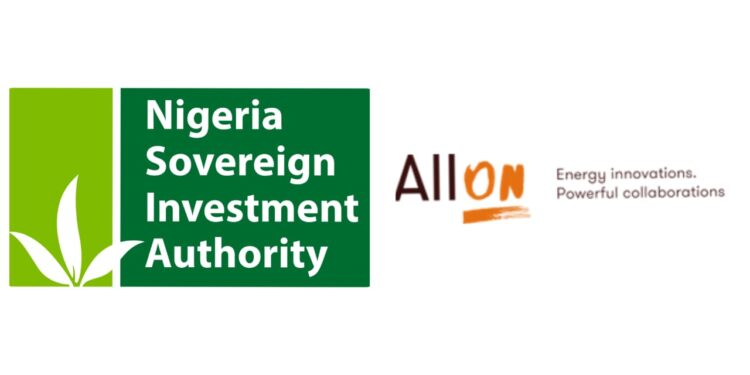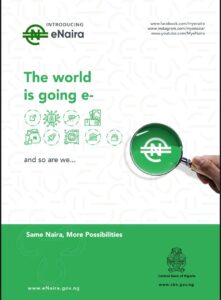The Nigeria Sovereign Investment Authority (NSIA) and All On, a Nigerian impact investor focused on renewable energy, are joining forces to bring light and opportunity to energy-deprived communities across the country.
They will achieve this by deploying Distributed Renewable Energy (DRE), a transformative approach that utilizes small-scale solutions like solar mini-grids and home systems to reach areas abandoned by traditional grid infrastructure.
Caroline Eboumbou – MD All On noted that DRE offers agility and efficiency, capable of illuminating remote villages and towns overlooked for far too long. According to her, “Mini-grids alone hold the potential to empower millions of low-income households and small businesses, while generating a staggering $10 billion in annual revenue” – a tantalizing prospect for a nation grappling with energy challenges.
However, unlocking this bright future requires more than just technology. This is where All On’s Demand Aggregation for Renewable Technologies (DART) programme steps in. Launched in 2022, DART acts as a powerful catalyst, bringing together multiple DRE developers and negotiating advantageous prices for renewable energy components and secure financing from commercial lenders.
“In less than two years, DART has funded 12 companies, paving the way for over 40 mini-grids and 47,000 connections. Over 230,000 lives and businesses are set to be positively impacted, a testament to DRE’s transformative power” Eboumbou said.
One shining example is the Chito Community project in Benue State. This 350KW mini-grid, the largest isolated project in the state, will positively impact the lives of over 7,000 households and businesses, opening doors to new possibilities and economic growth.
The impact of DRE extends far beyond mere illumination. Clean, reliable energy fosters economic development, empowers entrepreneurship, and strengthens healthcare services. It empowers communities, particularly women, to participate meaningfully in the economy and shape their own destinies.
Recognizing the immense potential, Aminu Umar-Sadiq, NSIA’s MD/CEO, called for continued investment from development partners, providing both capital and technical assistance. He also challenged “the private sector to innovate and develop scalable, affordable DRE solutions”.
“We are committed to leading the charge in this collective effort,” he declares. “We are working closely with partners to address the barriers to DRE adoption and to scale up its deployment across Africa. We believe that DRE is not just a solution to energy poverty, but a catalyst for a more sustainable, equitable, and prosperous future.”
DRE is central to NSIA’s Renewable Investment Platform for Limitless Energy (RIPLE) which wants to achieve expanded energy access to the unserved and underserved segments of the population. RIPLE is expected to target displacement of diesel-powered generation for commercial and industrial consumers.
NSIA is actively demonstrating this commitment through initiatives like the Construction Finance Warehouse Facility (CFWF), established in collaboration with InfraCredit. This NGN10 billion facility unlocks long-term capital for sustainable greenfield infrastructure projects, attracting further investment through domestic capital markets.
However, Umar-Sadiq called for more enabling policies, financial incentives, and streamlined regulatory processes are essential for DRE to reach its full potential.
This commitment to DRE by NSIA and All On, marks a new dawn for energy-deprived communities in Nigeria. As DRE illuminates villages and towns across the country, it signifies more than just access to electricity – it represents a pathway to economic growth, empowerment, and a brighter future for millions.
NSIA, All On Collaborate to Improve Access to Energy in Nigeria Through DRE
0
SHARES
0
VIEWS
Leave a Reply Cancel reply
FOLLOW US
BROWSE BY CATEGORIES
BROWSE BY TOPICS
2023 Benue Budget
Abuja-Kaduna Rail
Access Corporation
Access pension
Aviation
Ayu
Benue Budget
Benue Community
Buhari
Business
Dana Air
Economy
FAAN
FGPL
Herdsmen
Herdsmen attacks
insecurity
insurance
Kano
Lagos
Mallam Aminu Kano International Airport
Maritime
Min of Transport
MSMEs
Murtala Mohammed International Airport
NAICOM
NCAA
Nigeria
Nigeria -Cameroon Border Post
Nigeria Air
NRac
Onne Port
Orrom
Ortom
PDP
PenCom
pension
Railway
Sambo Jaji
Transcorp
Transcorp Group
Transcorp Hotels Plc
Ukohol
Wike
Wildon Ideva
Economy Footprint
The EconomyFootprint is published by Ideas Tent Communications Ltd®. All Rights Reserved.










